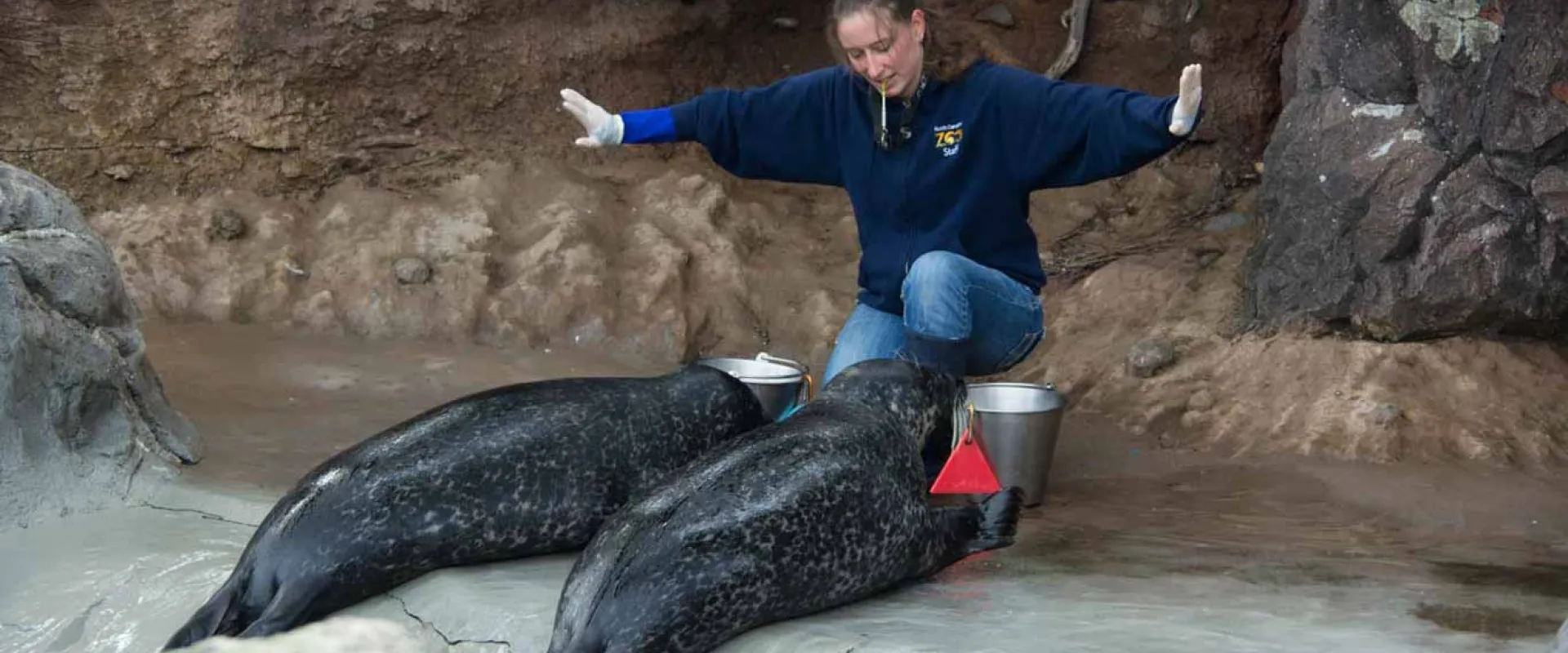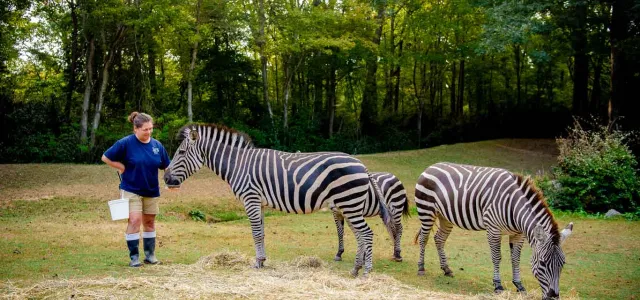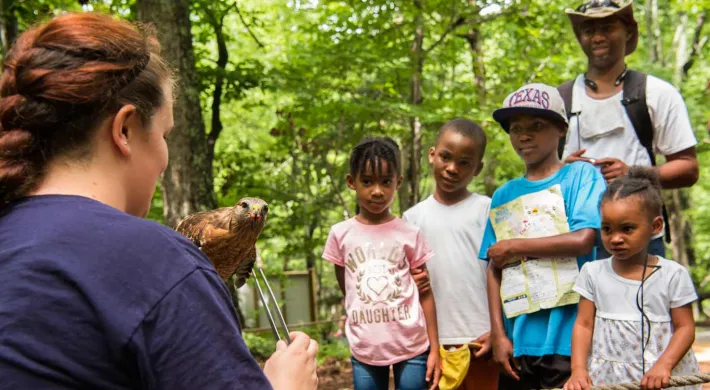Bob Langston, Sustainability and Conservation Outreach Coordinator for the North Carolina Zoo
It is quite common for students and others curious about the North Carolina Zoo to assume that the bulk of our daily activity is entirely devoted to caring for the animals. Though this task is often front and center of public attention, it takes a full team of people, involved in a wide variety of professions for the Zoo to function.
Over the next few weeks, I will share with you some of the professions that make the small city known as the North Carolina Zoo function. Some will be obvious, some will not but most of us function out of the public limelight.
Under normal operating circumstances, and in the peak of our spring season, the Zoo has over 600 people that contribute to our success. Positions included in this number include permanent, seasonal, temporary and contract employees.
April 2020 finds us far from “normal” in our daily operations. The Zoo has been closed to guests since Tuesday, March 17, 2020, and remains in this status until we are cleared by NC Department of Health and Human Services to reopen to the public. Life does go on inside the gates of the Zoo. Each day, animal diets are prepared by our commissary staff. Animals are fed, enclosures are cleaned and filtration for all aquatic features is maintained. Every animal experiences the same enrichment and health care as they would were you there to amaze at these magnificent ambassadors.
Other parts of the essential crew keep things running, supervise contractors, purchase supplies, maintain cleanliness of the facilities while distributing supplies and repairing whatever requires attention. Across the property, Horticultural staff water plants, trim trees, compost a wide variety of materials and propagate plants so the Zoo is ready for you when it reopens.
Those who can, continue work from remote locations. We share your concerns!
Were the situation different, and operations “routine,” the North Carolina Zoo is a bustling, small city. More than 50 buildings are found on the 2,600 acres of contiguous property, and you would find staff to handle days where we are host to up to 15,000 guests.
During those better days, this is what work life is like.
In broad terms, careers are divided into large categories that are addressed by management groups: Operations; Planning and Construction; Communications; Conservation, Education and Science; Animal Management. These categories are not intended to explain functions, but to place every work section into a management group.
The Zoo is, normally, open 363 days per year (closed on Thanksgiving and Christmas Days) and this means that there are overlapping schedules so we may operate seven days each week.Some areas, such as the Ranger Staff work different shifts. Some areas have teams that cover the same duties, at different times of the week.
Between April and October, the facility is open to guests between 9 a.m. and 5 p.m. Days typically begin before guests arrive and end after guests have departed. This means that on a day when the Zoo is open, staff days are longer than eight hours. Animal keepers and other sections have staggered arrival and departure times.
It might be fair to say that many professional disciplines represented in the general work force are found on the Zoo Staff.
We have accountants, office managers, writers, graphic designers, marketing specialists, emergency medical technicians, cooks, cashiers, mechanics, welders, heating and air conditioning specialists, horticulturalists, heavy equipment operators, rock climbers, scuba divers, swimming pool chemists, artists, purchasing agents, schedulers, bus drivers, safety specialists, electricians, plumbers, animal care specialists, veterinarians and dozens more.
With more than 600 people employed at the Zoo, it would also be fair to say that there are at least 600 stories about how individuals came to their positions at the Zoo. Because there are so many different jobs and tasks required, there really is no single training or pathway to a career at the North Carolina Zoo. With so many opportunities, it will be far better to take a look at some of the different types of jobs, what they do, and how may acquire training and experience in preparation for a career at the World’s Largest Natural Habitat Zoo.
There will be more to share about Careers with the North Carolina Zoo.
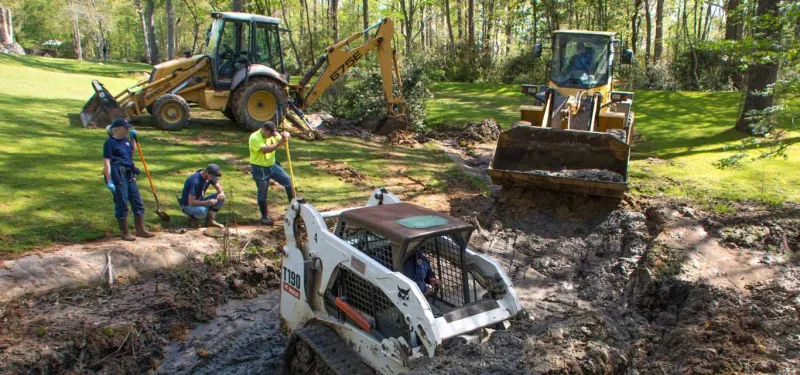
As the world's largest natural habitat zoo, there is plenty of landscaping and other maintenance work year-round.
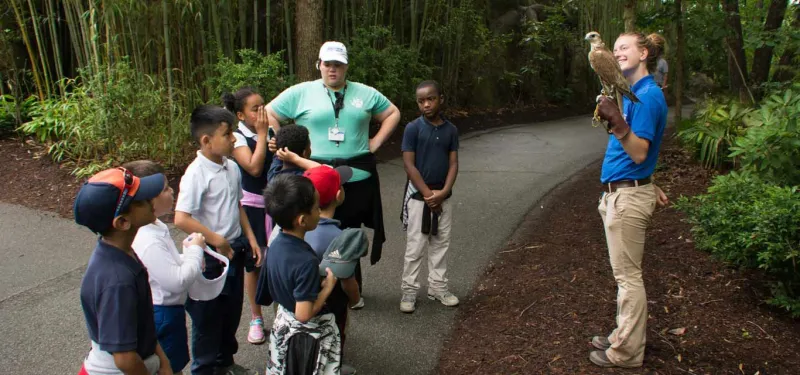
Zoo staff member introduces one of the Zoo's ambassador animals to guests.

The Zoo runs like a small city and has a variety of jobs and careers.
